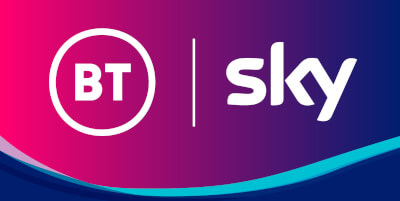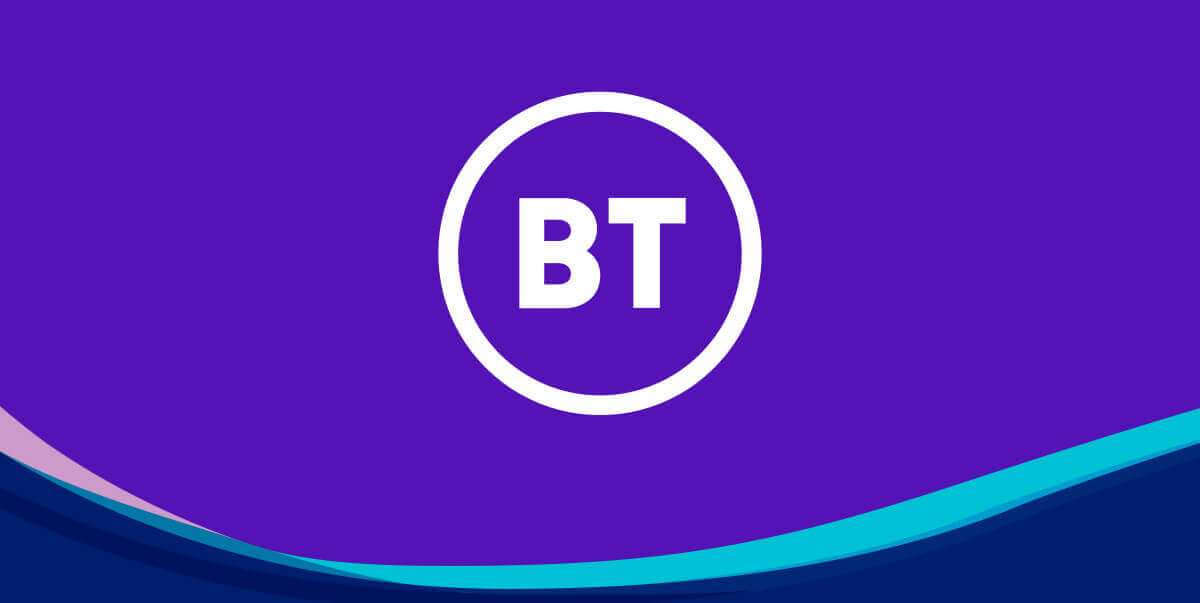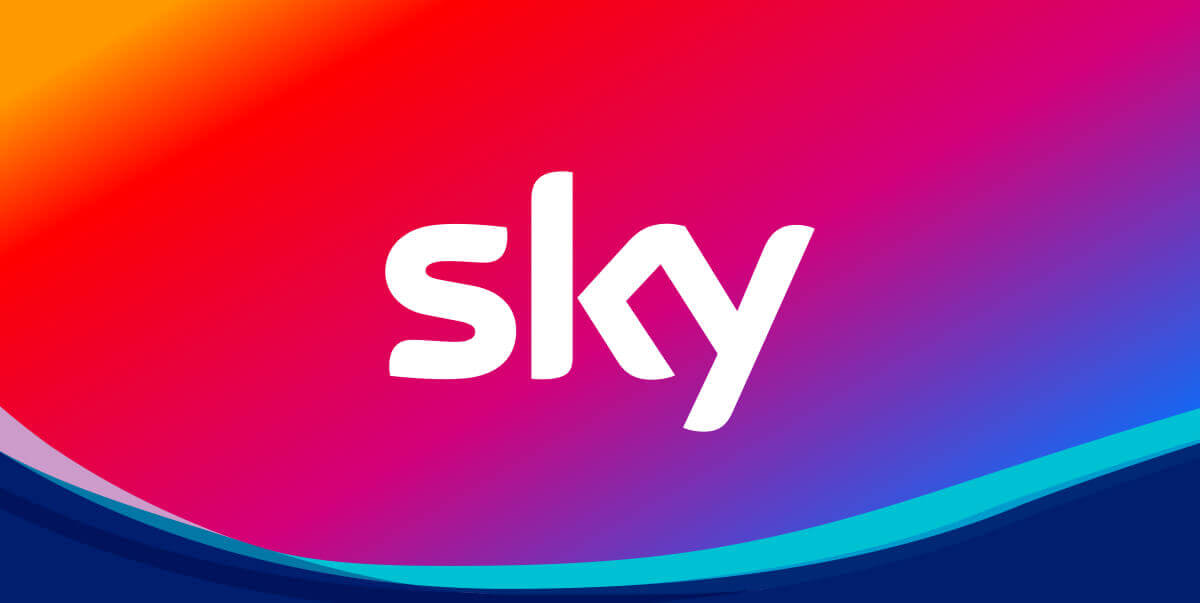BT broadband vs Sky broadband 2024: Which is best?
 Dan Howdle • November 4th, 2024
Dan Howdle • November 4th, 2024

BT needs no introduction, having offered communications services to consumers for decades, while Sky is best known for the satellite television service it has offered since the early 1990s and is now phasing out to make way for internet-only TV service Sky Stream. In 2006, Sky introduced its broadband services, and competition has become fierce between the two providers ever since.
If you’re after a TV service to go with your broadband, then the equation is a little bit more complex, but if it’s a straight shoot-out on broadband then it's a different story. Let's find out which one of these heavyweights is right for you.
Key feature comparison
Here's a quick feature comparison on how BT and Sky stack up.
| Provider | BT Broadband | Sky Broadband |
|---|---|---|
| Download speeds | Up to 900Mbps | Up to 900Mbps |
| Upload speeds | Up to 110Mbps | Up to 100Mbps |
| Fibre | 74Mbps | 61Mbps |
| Full Fibre | 900Mbps | 900Mbps |
| Network | Openreach | Openreach |
| Our review |
Broadband speed

Winner: BT
BT wins when it comes to speed, purely by offering more choice than Sky. BT offers six broadband speeds against Sky’s five, offering more choice at the lower (and cheaper) end of the speed scale, with three superfast fibre speeds of 36Mbps, 50Mbps and 74Mbps. Sky keeps it simple with just two superfast fibre speeds of 36Mbps and 61Mbps. Only BT now offers slow ADSL standard broadband (averaging 10Mbps) to customers that still cannot get any form of fibre.
When it comes to Full Fibre, Sky offers four packages, averaging 75Mbps, 145Mbps, 500Mbps and 900Mbps. In comparison, BT offers its four Full Fibre packages of 75Mbps, 300Mbps, 500Mbps and 900Mbps.
Both Sky and BT operate over the Openreach broadband network, which is rapidly rolling out Full Fibre connections across the country, with the aim of covering 85% of the country by 2026. To see if you can get Full Fibre at your address, simply visit our availability checker (below).
Packages

Winner: Draw
Both Sky And BT demand 24-month contracts from their customers now – something we're not very happy about. 18 months was already pushing things, but with 24 months becoming the new normal, customers are going to be tied in for too long with no option to switch away. 24-month contracts are anti-consumer in our opinion and so both providers get a black mark here.
Both Sky and BT packages either come with a phone line, or in the case of BT Full Fibre allow you to add one if you want one. Pay-as-you-go calls are standard, but Full Fibre packages will come with an internet phone line rather than a traditional analogue phone line. This is due to the fact that the old copper phone lines are not present in Full Fibre connections. You will still be able to use your landline in the same way, and you can still keep your current phone number if you wish.
Regardless of whether you choose BT or Sky, you just need to tell your new provider that you are planning to switch. They’ll tell your old provider and then both will write to you to confirm the details. The exception is if you are currently with Virgin Media, in which case you’ll also have to tell Virgin you are leaving, but you no longer need to phone them to do this as your new provider will now do it for you.
Customers looking for a broadband and TV package are well catered for by both Sky and BT. However, since BT TV and BT Sport have both been abandoned by BT (BT Sport sold to TNT, BT TV replaced by EE TV), and with Sky's excellent Stream TV service taking over from its old Sky Q satellite service, Sky wins hands-down here in terms of what it offers and the ease and simplicity with which it offers it.
-
 £50 gift cardSuperfast
£50 gift cardSuperfast- 61Mb average speed +
- Unlimited usage +
- PAYG calls
- £50 Gift Card
£27.00 per month(prices may change during contract)£50 gift card£5 one-off cost24 month contract -
 £80 gift cardFull Fibre 500
£80 gift cardFull Fibre 500- 500Mb average speed +
- Unlimited usage +
- PAYG calls
- £80 Gift Card
£33.00 per month(prices may change during contract)£80 gift card£5 one-off cost24 month contract -
 £50 gift cardSuperfast + Wifi Max
£50 gift cardSuperfast + Wifi Max- 61Mb average speed +
- Unlimited usage +
- PAYG calls
- £50 Gift Card
£31.00 per month(prices may change during contract)£50 gift card£5 one-off cost24 month contract
Customer service

Winner: Sky
Both Sky and BT have pretty good records when it comes to customer service, but according to Ofcom’s most recent report on the subject (in 2023, the 2024 report is very late at this current time), BT is currently leading the way, with 83% customer satisfaction with the service overall, against 82% for Sky. Both providers are on or above the sector average of 82% however, so you can expect a decent standard whichever you choose.
Delving a little deeper into Ofcom’s report reveals that Sky has the fewest number of customers with a reason to complain, and only 16 Ofcom complaints per 100,000 customers against 35 for BT. Still, these are tiny numbers and generally reflect a high standard of customer satisfaction.
When it comes to satisfaction with the speed of the service, Sky and BT are neck and neck on 80%. Sky does however take the lead on average call waiting times for customers wanting to get through on the phone, averaging two minutes and 45 seconds against two minutes and 16 seconds for Sky. However, with the ongoing push for customers to make contact online rather than over the phone, this statistic is becoming increasingly irrelevant.
Router and technology

Winner: Sky
There’s little to choose between the two in terms of equipment, with Sky providing its Sky Broadband Hub and BT providing its BT Smart Hub 2 to customers. Sky wins by offering the option to upgrade its router to the Wi-Fi 6-capable Sky Max Hub for a small monthly fee.
All routers have smart signal technology to optimise the wireless connection, ethernet ports so you can connect up your wired devices to get the optimum speed. The Sky Broadband Hub has eight antennae against seven on the BT Smart Hub 2, and the BT Smart Hub 2 is DECT phone compatible, which the Sky Broadband Hub is not, although this is really only relevant for those that still use their landlines and like to wander around with a cordless phone.
When it comes to concerns about your Wi-Fi signal, both providers offer a solution. Sky offers its Sky WiFi Max which guarantees a minimum speed in every room of your house, and BT offers its Complete Wifi system to do the same. Both services come at an extra monthly fee on top of your broadband service.
Extras

Winner: Draw
If you opt for Sky broadband then you’ll get access to the Sky Wi-Fi nationwide network of hotspots, allowing you to use your laptop while you’re out and about, or to save your mobile data allowance should you need to. But this is matched by BT, which will give you free access to the vast BT Wi-Fi network.
You used to be able to get free BT Sport with BT Broadband, but that's no longer the case. On the other hand broadband and TV crossover benefits with Sky are pretty much on-existent these days too, with the primary reason to bundle being to save money.
Sky uniquely offers a loyalty programme to which all customers can join from the word go. Known as Sky VIP, it is a tiered loyalty system whereby the longer you stay with Sky, the more benefits you can enjoy. From free films and competitions to walk-on parts in your favourite shows, Sky VIP offers something different to its customers.
Overall
Winner: Sky
There’s really very little to differentiate between Sky and BT when it comes to solely looking at broadband, with both providers offering a very similar choice of speeds, good quality routers and high levels of customer service and satisfaction, so it ultimately comes down to the price, and there Sky pulls ahead. BT is an expensive provider. Not 'premium' as an excuse – sure it's definitely a premium service – but expensive even for that. Sky just offers better value for money so with little else to differentiate their broadband offerings, Sky wins.
